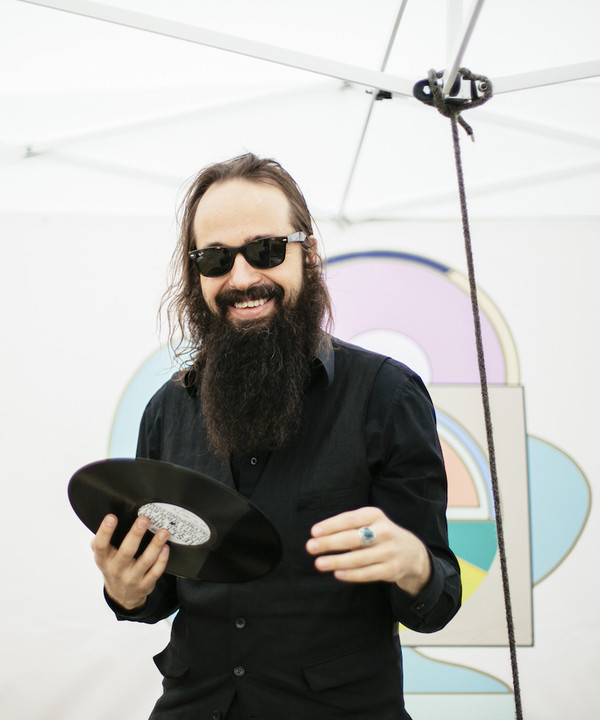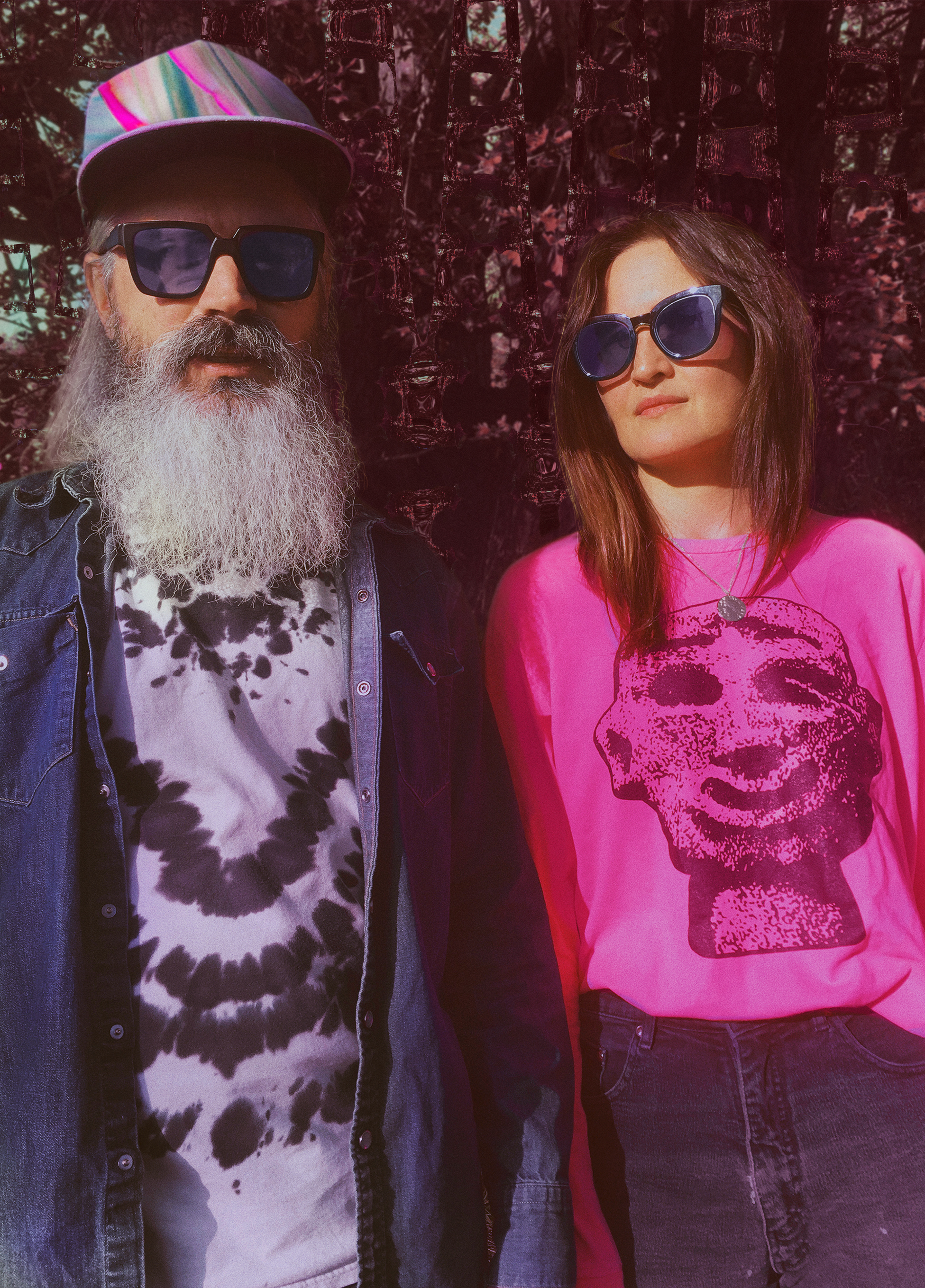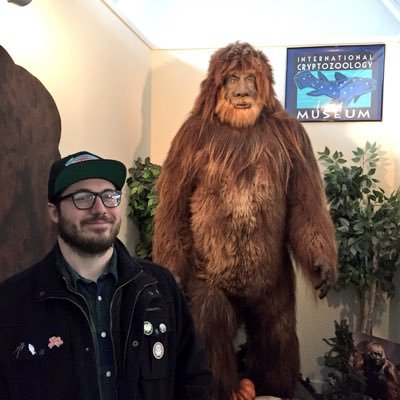Rooted in DIY, the Brooklyn label’s consistency in quality lets it take eclectic risks.
A record label can represent a lot of things—a unique aesthetic, a specific scene/sound, or even just the taste of a single person—but rarely does one blend all three with a consistent stamp of quality quite like Sacred Bones. Established by Caleb Braaten in 2008 as a conduit to release records by his friends, it was initially known for its work in the DIY, indie, post-punk, and goth worlds but has since evolved into books, niche genres, movie scores, and truly offbeat reissues.
The Brooklyn outfit’s recent releases have included Louisiana sludge metal act Thou’s 2018 LP Magus, the soundtrack to the Oscar-winning Parasite, an album from director David Lynch, and Mort Garson’s Mother Earth’s Plantasia, a Moog-synth record created in the ’70s specifically for the listening pleasure of plants and distributed at a Los Angeles nursery. Yet no matter how much each release varies from the next, one thing remains constant—the level of artistic excellence.
The beginning
Braaten, unsurprisingly, grew up as a music fiend, surrounded by records at Twist & Shout, a Denver shop owned by a friend’s family. His formative years were spent begging the store’s employees to borrow cassettes so he could dub copies for himself, pleas that became unnecessary when he eventually got hired to work there, too. “The folks there would turn us on to crazy stuff,” recalls Braaten. “We were tween metalheads, really into Metallica, Guns N’ Roses, and a lot of other stuff that is much more lame. I remember one day they suggested the self-titled Naked City record. It totally blew my mind—What is this? Thrash-jazz? It opened me up to all kinds of stuff at a younger age.”
An eventual move to New York City led to a job at the esteemed Academy Records in Williamsburg, Brooklyn, the basement of which was home to both the beloved Norton Records, which specializes in garage and rockabilly releases, and Braaten’s small merch company dedicated to horror-film merch. There, Braaten came up with an idea for a label as a means to release reissues in the vein of the highly influential Killed by Death series of punk and hardcore obscurities. But, in 2007, when his friends in the post-punk band The Hunt were looking for a home for their “1000 Nights” 7”, he was more than willing to switch his plans up. “I thought to myself, I bet I know enough people to sell this record. I got a website, too! Took about five years to sell them,” chuckles Braaten.

The expansion
Though The Hunt eventually moved through all 500 units of the vinyl single at their merch table and consignment shops around New York City, Sacred Bones’s second release, Blank Dogs’ 2007 EP Diana (The Herald), was its first taste of success. “It sold out three pressings, but it was just an EP. That year, [frontman and Captured Tracks founder] Mike Sniper put out two EPs and three 7”s, just a lot of stuff, so it didn’t really feel like a Sacred Bones thing as much. It was really Zola Jesus that took everything to the next level.”
After Braaten stumbled onto her dark electronic songs on MySpace and brought her into the Sacred Bones orbit, Zola Jesus—the stage name of then-college-student Nika Roza Danilova—made waves with a pair of haunting 2009 LPs, the compilation album New Amsterdam and The Spoils. Thanks to the widespread attention on those records and her 2010 EP Stridulum, Sacred Bones was on its way towards plenty of press attention, worldwide distribution, and, finally, the hiring of employees. Successful acts like The Men, Amen Dunes, Psychic Ills, TR/ST, Marisa Nadler, Moon Duo, Lust for Youth, Pharmakon, and Blanck Mass soon blossomed under its umbrella, releasing records to heaps of critical acclaim and ravenous audiences.
In a short time, Sacred Bones had moved from a business based on friendship to an indie powerhouse, to the point where a 2010s release from there was seemingly comparable in stature to one on Earache Records in the late ’80s or Rawkus in the ’90s—whether or not you were familiar with the artist, you knew it would be worth checking out. It also helped that many of its early releases had a signature look that fans would recognize. Braaten and designer David Correll, who still plays a key part in the company, settled on using a sparse layout that used the same fonts for all its artists and the Sacred Bones’s triangle logo prominently displayed in the upper-left corner.
“We wanted the label to have a voice—if you saw a record that was on that label you’d immediately know it,“ recalls Braaten. “The aesthetic came from Factory Records, which we were huge on. [Their art director] Peter Saville is our number-one hero—we have huge love for that guy—but it also came from library records: Blue Note, Deutsche Grammophon, and other dollar-bin classical records. It was that sort of uniformity that we liked.”
Although Sacred Bones had focused its efforts on the development of young acts, it also managed to rope in some major names like horror pioneer John Carpenter and esteemed Twin Peaks auteur David Lynch. “I prepared a package to send [Lynch]. It was basically a copy of every version of every record that SB had put out, a pretty massive box,” recalls Braaten. “A friend of a friend was working for David and I felt comfortable enough to hand it off in person. [We met] and I pitched the idea of reissuing the Eraserhead soundtrack.” Lynch has since released two more albums through Sacred, 2013’s bluesy The Big Dream and a 2014 reissue of his “sound collage” The Air Is on Fire.
Carpenter’s involvement with Sacred Bones, meanwhile, came as a result of his friendship with Lynch. The directors’ shared attorney asked Braaten if he had any ideas for the Halloween mastermind, who famously came up with that movie’s influential keyboard theme song, on an upcoming project, so Braaten asked Carpenter if there was an archive of unused music from his previous sessions. “He said no but offered that he had been making music with his son in between playing video games,” Braaten says. “I was intrigued, so he sent a CD-R of a bunch of music that became [2015’s] Lost Themes. After all that time making bootleg [horror] tees and patches in the early days, it sort of felt full circle.”

The next leaps forward
Braaten isn’t doing it alone. In 2013, Brad Sanders joined Sacred Bones as its Label Manager after working on the distribution side at Secretly Group. During his tenure, Sanders has helped to expand the book division with Project Manager and Head of Publishing Carrie Schaff, releasing over a dozen titles, including works by esteemed metal photographer Peter Beste and artists Sam Ryser and Alexander Heir. He’s also grown into an A&R role, helping widen the Sacred’s genre palate and audience reach with the signings of heavier rock bands like Thou and Uniform.
“The first metal-adjacent band was Uniform, and that was a group decision based on their live show and previous recordings. That led to ‘How can we push this? What can we do in the realm of heavy music?’” recounts Sanders. “Thou’s signing came from my relationship with the band and their love of the label. Both of them, as well as The Body, see themselves as coming from a very different scene as far as being forward-thinking heavy music. That’s something that we really want to make a part of what we do. There’s something simpatico between their audiences and fans of what might traditionally be considered ‘our music.’”

And while fresh signings like Belarusian post-punk band Molchat Doma and additional rare material from artists like electronic pioneer Mort Garson are a big part of Sacred Bones’ growth, it’s the label’s ability to nurture talent that’s been crucial to its sustained success. Just look at the active roster, which is filled with artists that have stuck with Braaten and the team since initially signing: The Men, Föllakzoid, Gary War, Moon Duo, and Pharmakon all released early-career albums with Sacred Bones and put out new LPs with it in the past year.
Braaten attributes that continued loyalty to the atmosphere and honest business ethos he created at Sacred Bones. “I’d like to think that we’re fair and people know we aren’t going to rip them off,” he says. “We work hard and do our best to create a family environment.” Sanders concurs: “[Sacred Bones was] very associated with Brooklyn DIY in the early days, but I think that now we’re seen as a cross-scene/genre/medium curator that hasn’t lost that DIY ethic. To be able to have it both ways is something that means a lot to us.”
-Fred Pessaro

No comments:
Post a Comment